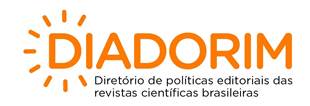Prevalence of menstrually-related migraine in a population of students from a municipal university center in the interior of Brazil
Views: 1342DOI:
https://doi.org/10.48208/HeadacheMed.2021.6Keywords:
Headache, Migraine, Migraine related to menstruationAbstract
Objective
To identify the prevalence of migraine associated to menstruation in a population of students at a college in Brazil’s inland.
Methods
The students were recruited and submitted to the Test for the Identification of Women with Menstrual Period-Related Headache based on the ID-MigraineTM and Menstrual Migraine Assessment Tool questionnaires. Migraine diagnosis was made according to ICHD-3 criteria.
Results
Of the 424 students, 312 (73.5%) answered affirmatively in at least two of the four questions in the first part of the questionnaire and in the following 216 (69.2%) of these reported having migraine related to their menstrual period in the majority of the months.
Conclusions
Menstrual migraine is a prevalent public health problem that deserves attention in order to ensure a better quality of life for women affected by such a condition.
Downloads
References
Arnold MJC. Headache classification committee of the international headache society (IHS) the international classification of headache disorders. 2018;38(1):1-211
James SL, Abate D, Abate KH, Abay SM, Abbafati C, Abbasi N, ... Abdela J. Global, regional, and national incidence, prevalence, and years lived with disability for 354 diseases and injuries for 195 countries and territories, 1990–2017: a systematic analysis for the Global Burden of Disease Study 2017. The Lancet 2018;392:1789–1858 Doi: 10.1016%2FS0140-6736(18)32279-7
Queiroz LP, Peres MF, Piovesan EJ, Kowacs F, Ciciarelli MC, Souza JA and Zukerman E. A nationwide population-based study of migraine in Brazil. Cephalalgia : an international journal of headache 2009;29(6):642-649 Doi: 10.1111/j.1468-2982.2008.01782.x
Queiroz LP and Silva Junior AA. The prevalence and impact of headache in Brazil. Headache 2015;55(Suppl 1):32-38 Doi: 10.1111/head.12511
Ferreira KS, Bolinelli LP and Pagotto LC. Migrânea e sincronização de ciclo menstrual em mulheres: existe uma relação? Relato de caso. Revista Dor 2015;16:156-158 Doi: 10.5935/1806-0013.20150030
Faubion SS, Batur P and Calhoun AH. Migraine Throughout the Female Reproductive Life Cycle. Mayo Clinic proceedings 2018;93(5):639-645 Doi: 10.1016/j.mayocp.2017.11.027
Macgregor EA. Progress in the pharmacotherapy of menstrual migraine. Clinical Medicine Insights: Therapeutics 2011;3:245-273 Doi: 10.4137/CMT.S6170
Allais G and Benedetto C. Update on menstrual migraine: from clinical aspects to therapeutical strategies. Neurological sciences: official journal of the Italian Neurological Society and of the Italian Society of Clinical Neurophysiology 2004;25(Suppl 3)229-231 Doi: 10.1007/s10072-004-0292-6
Melhado EM. Enxaqueca na Mulher. Enxaqueca Em Pauta - Revista da Novartis 2020;1:6-8
Miziara L, Bigal ME, Bordini CA and Speciali JG. Cefaléia menstrual: estudo semiológico de 100 casos. Arquivos de Neuro-Psiquiatria 2003;61(3A):596-600 Doi: 10.1590/S0004-282X2003000400013
Calhoun AH, Gill N. Presenting a New, Non‐Hormonally Mediated Cyclic Headache in Women: End‐Menstrual Migraine. Headache 2017;57(1):17-20 Doi: 10.1111/head.12942
Mattos A, Souza JA, Moreira PFF, Jurno ME and Velarde LGC. ID-Migraine™ questionnaire and accurate diagnosis of migraine. Arquivos de neuro-psiquiatria 2017;75(7):446-450 Doi: 10.1590/0004-282x20170069
Tepper SJ, Zatochill M, Szeto M, Sheftell F, Tepper DE and Bigal M. Development of a simple menstrual migraine screening tool for obstetric and gynecology clinics: the menstrual migraine assessment tool. Headache 2008;48(10):1419-1425 Doi: 10.1111/j.1526-4610.2008.01304.x
Tepper SJ, Zatochill M, Szeto M, Sheftell F and Tepper DE. Development of a simple menstrual migraine screening tool for obstetric and gynecology clinics: the menstrual migraine assessment tool Headache 2008;48(10):1419-1425 Doi: 10.1111/j.1526-4610.2008.01304.x
Lima AS, Araújo RC, Gomes MRA, Almeida LR, Souza GFF, Cunha SB and Pitangui ACR. Prevalência de cefaleia e sua interferência nas atividades de vida diária em adolescentes escolares do sexo feminino. Revista Paulista de Pediatria 2014;32(2):256-261 Doi: 10.1590/0103-582201432212113
Aquino J and Fortes F. Cefaleias na adolescência. Revista adolescência e Saúde 2009;6(3)
Crawford MJ, Lehman L, Slater S, Kabbouche MA, Lecates SL, Segers A, ... Hershey AD. Menstrual migraine in adolescents. Headache 2009;49(3):341-347 Doi: 10.1111/j.1526-4610.2009.01347.x
Published
How to Cite
Issue
Section
License
Copyright (c) 2021 Isabela Silva Tavares, Ariana Pereira Germano , Carlos Alberto Bordini

This work is licensed under a Creative Commons Attribution 4.0 International License.












